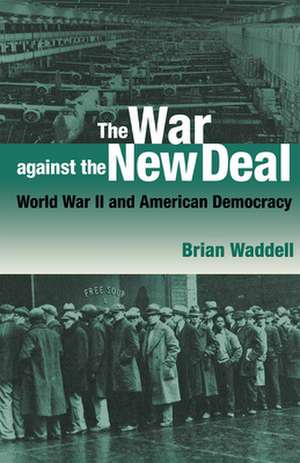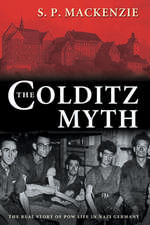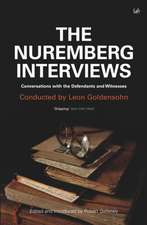The War against the New Deal: World War II and American Democracy
Autor Brian Waddellen Limba Engleză Hardback – 31 ian 2001
Waddell addresses a central paradox in American governance: the rise of a strong national security state coincided with a relatively weak federal structure. He argues that on the political home front World War II represented the victory of the warfare state over the nascent New Deal welfare state, with important consequences for American democracy. The warfare state defeated the New Deal's labor and academic supporters, thereby increasing the national capacity for global involvement while undermining domestic intervention.
Waddell traces the creation of a military-corporate alliance from its tenuous beginnings during World War I to its crowning fulfillment with World War II. This alliance blocked any wartime increase in controversial domestic programs, as corporate interests created an international activism to supplant New Deal activism. The outcome of the war against the New Deal was a militarily powerful, centralized national security state that was structurally and politically unable to confront the decisive issues of postwar America, from Civil Rights to social welfare.
The War against the New Deal describes the role economic interests played in tipping the balance in the wartime struggles over resources and power—and the results of increasing corporate influence within the federal government. It reveals how the warfare state legitimized the postwar growth of national state power and how it strengthened, without democratizing, the American government.
Waddell traces the creation of a military-corporate alliance from its tenuous beginnings during World War I to its crowning fulfillment with World War II. This alliance blocked any wartime increase in controversial domestic programs, as corporate interests created an international activism to supplant New Deal activism. The outcome of the war against the New Deal was a militarily powerful, centralized national security state that was structurally and politically unable to confront the decisive issues of postwar America, from Civil Rights to social welfare.
The War against the New Deal describes the role economic interests played in tipping the balance in the wartime struggles over resources and power—and the results of increasing corporate influence within the federal government. It reveals how the warfare state legitimized the postwar growth of national state power and how it strengthened, without democratizing, the American government.
Preț: 373.84 lei
Nou
Puncte Express: 561
Preț estimativ în valută:
71.54€ • 77.68$ • 60.10£
71.54€ • 77.68$ • 60.10£
Carte tipărită la comandă
Livrare economică 22 aprilie-06 mai
Preluare comenzi: 021 569.72.76
Specificații
ISBN-13: 9780875802725
ISBN-10: 0875802729
Pagini: 236
Dimensiuni: 152 x 229 x 23 mm
Greutate: 0.52 kg
Ediția:1
Editura: Northern Illinois University Press
Colecția Northern Illinois University Press
ISBN-10: 0875802729
Pagini: 236
Dimensiuni: 152 x 229 x 23 mm
Greutate: 0.52 kg
Ediția:1
Editura: Northern Illinois University Press
Colecția Northern Illinois University Press
Recenzii
"An impressive study that should interest anyone concerned with the historical development of the modern American state."—Canadian Journal of Political Science
"A subtle and sophisticated analysis that builds on important historical work.... A well-structured and clearly written argument."—Paul Koistinen, California State University, Northridge
"A subtle and sophisticated analysis that builds on important historical work.... A well-structured and clearly written argument."—Paul Koistinen, California State University, Northridge
Cuprins
Table of Contents
Introduction: War and Statebuilding
1 The Crisis of Modern U.S. Governance
2 From Depression to War
3 Building the Wartime State
4 The Politics of Wartime Mobilization
5 Reconversion Politics
6 Constructing Postwar Governance
Conclusion:The Warfare-Welfare State
Notes
Bibliography
Index
1 The Crisis of Modern U.S. Governance
2 From Depression to War
3 Building the Wartime State
4 The Politics of Wartime Mobilization
5 Reconversion Politics
6 Constructing Postwar Governance
Conclusion:The Warfare-Welfare State
Notes
Bibliography
Index
Descriere
Waddell addresses a central paradox in American governance: the rise of a strong national security state coincided with a relatively weak federal structure. He argues that on the political home front World War II represented the victory of the warfare state over the nascent New Deal welfare state, with important consequences for American democracy. The warfare state defeated the New Deal's labor and academic supporters, thereby increasing the national capacity for global involvement while undermining domestic intervention.
Waddell traces the creation of a military-corporate alliance from its tenuous beginnings during World War I to its crowning fulfillment with World War II. This alliance blocked any wartime increase in controversial domestic programs, as corporate interests created an international activism to supplant New Deal activism. The outcome of the war against the New Deal was a militarily powerful, centralized national security state that was structurally and politically unable to confront the decisive issues of postwar America, from Civil Rights to social welfare.
The War against the New Deal describes the role economic interests played in tipping the balance in the wartime struggles over resources and power—and the results of increasing corporate influence within the federal government. It reveals how the warfare state legitimized the postwar growth of national state power and how it strengthened, without democratizing, the American government.
Waddell traces the creation of a military-corporate alliance from its tenuous beginnings during World War I to its crowning fulfillment with World War II. This alliance blocked any wartime increase in controversial domestic programs, as corporate interests created an international activism to supplant New Deal activism. The outcome of the war against the New Deal was a militarily powerful, centralized national security state that was structurally and politically unable to confront the decisive issues of postwar America, from Civil Rights to social welfare.
The War against the New Deal describes the role economic interests played in tipping the balance in the wartime struggles over resources and power—and the results of increasing corporate influence within the federal government. It reveals how the warfare state legitimized the postwar growth of national state power and how it strengthened, without democratizing, the American government.











